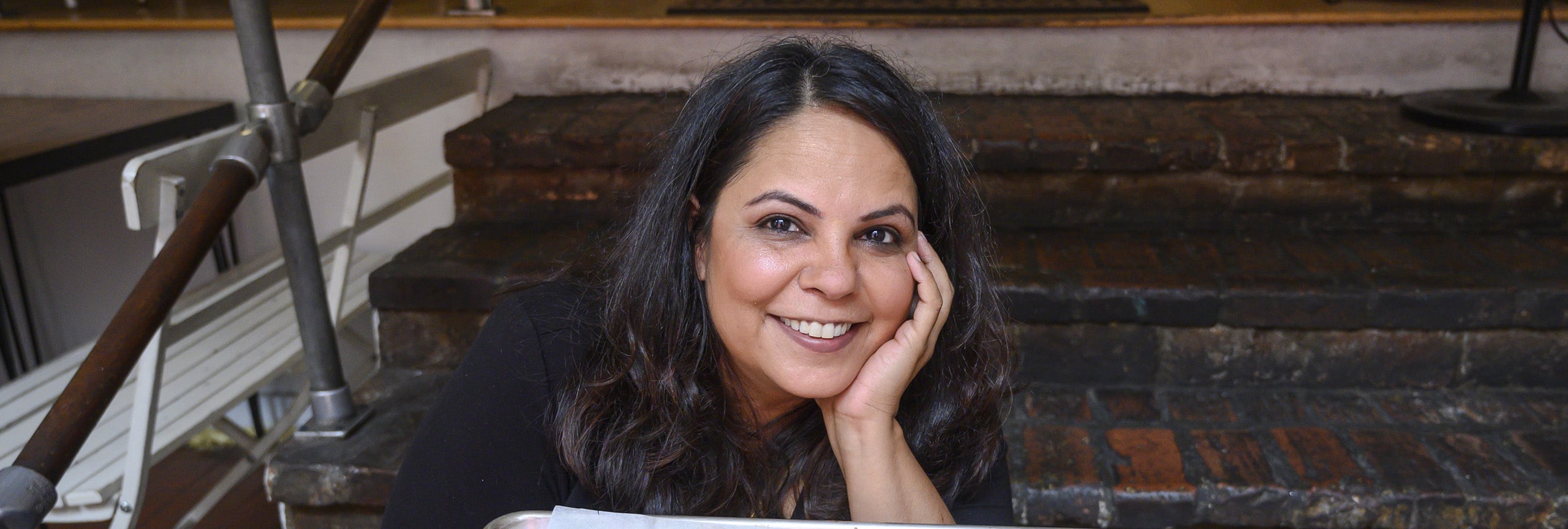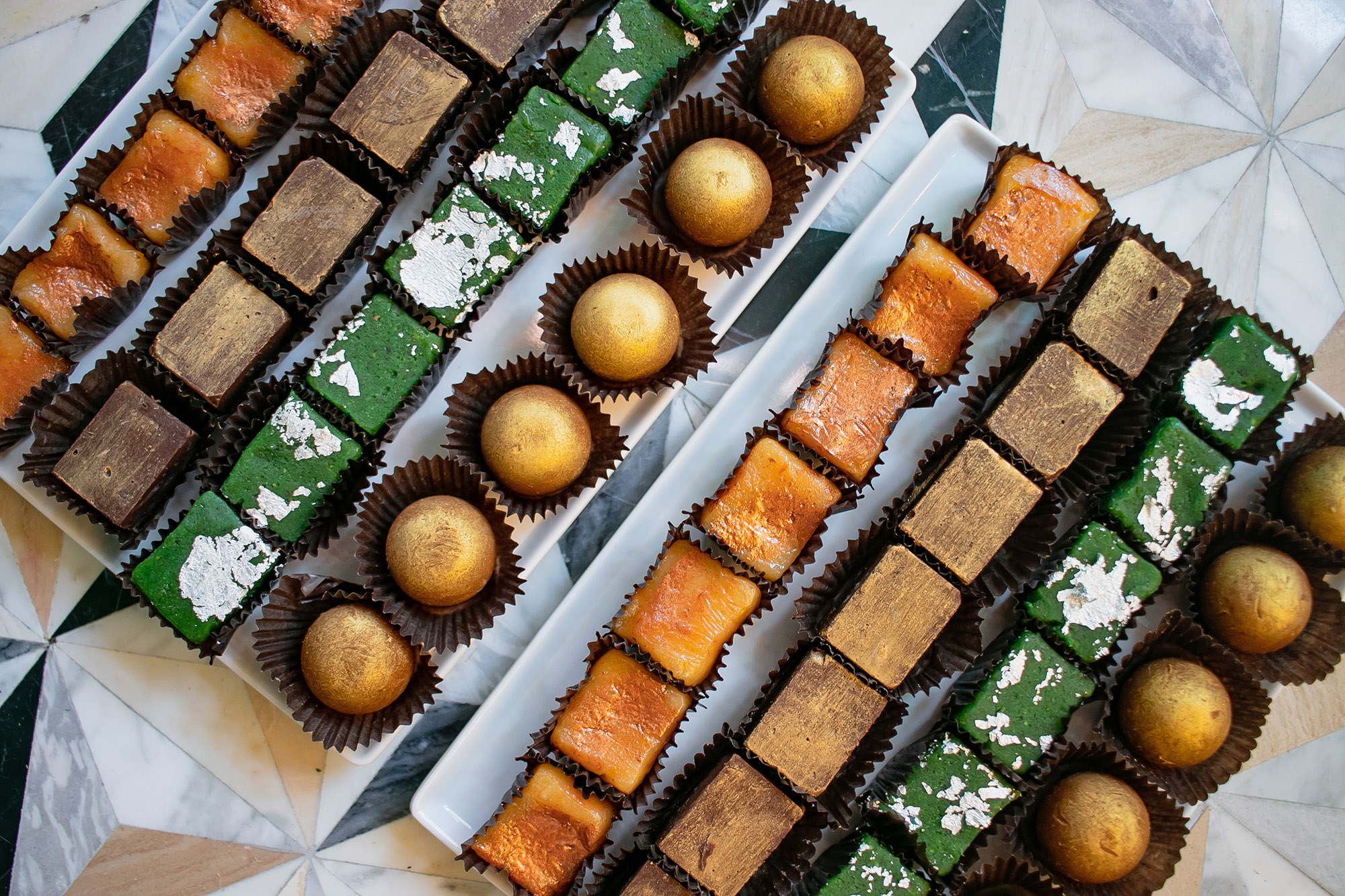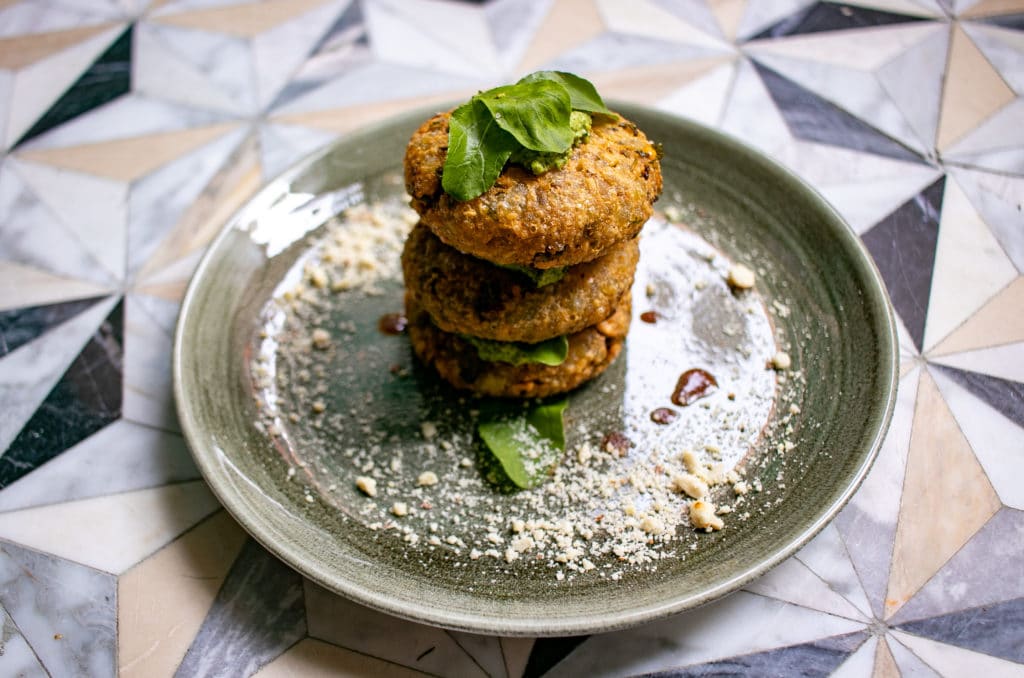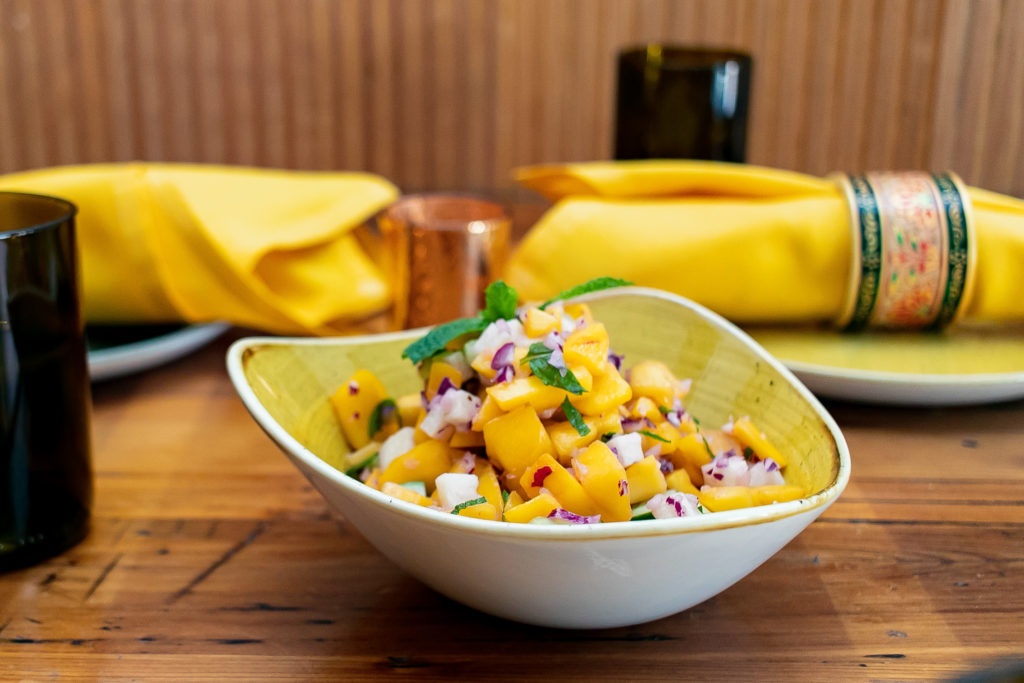
Chef Chat: Tagmo’s Surbhi Sahni
Regional Indian dishes and treats. Served with love amid bold jewel tones, tropical plants, and natural textures. This is Tagmo, the Seaport’s newest restaurant and sweets shop—where you can pick up beautifully packaged boxes of sweets, including vegan and nut-free collections, that make delicious gifts.
Here, Tagmo’s award-winning chef Surbhi Sahni talks about her culinary vision and unwavering commitment to diversity.
How would you describe the Tagmo experience?
Tagmo is designed around sharing—a dinner among friends passing around small plates, or just having a drink at the bar. Hospitality is so central to Indian culture; it feels natural to make my restaurant an extension of my home. The restaurant’s design plays on the vibrant landscapes of South Asia.
Tagmo began as an online sweets shop. How did that come about?
I’ve had decades of experience working in New York City restaurants, but as a queer immigrant woman of color, it’s hard to get a secure footing or be treated with respect in male-dominated professional kitchens. I knew I wanted to go into business for myself so that I would have creative agency and receive credit for my ideas. My side business started with making wedding cakes for friends and clients, then Diwali sweets collections modelled after the sweets I grew up eating. The business grew by word of mouth, while I was working in restaurants and catering.

Photo by Molly Tavoletti
How did your business weather the pandemic?
It was terrifying when everything came to a screeching halt. There were no parties or events, and no one wanted to buy sweets—a luxury when so many people lost their jobs, family members and all semblance of safety. I had to pivot my business quickly.
I had been cooking weekly homestyle meals for delivery on the side for a few Indian families, so I decided to launch meal delivery and see what happened. It was my only hope of staying afloat. And guess what? People ordered!
It was a lot of adapting on the fly, but I developed new regional menus each week with my small team, and collaborated with other Indian women and queer chefs, just like I had dreamed of doing. I was able to also use the extra food from the meals to help feed people through local mutual aid in Queens and South Asian food relief.
As New York City started cautiously opening up, a brick-and-mortar location was a natural next step.
What are some of your favorite dishes on the menu?
One dish that I love and is really uncommon is Sabudana Vada. They are Maharastrian crispy fritters that are made from tapioca balls, chilies, spices and are hand-formed into cakes, then fried and served with a peanut cilantro chutney. Most people don’t sell them because they take so long to make, but every bite is heaven.
As someone who grew up in Delhi, I knew I wanted to have some street food influence from my home city, so I came up with my own Khatta Meetha Chaat, which is like a carb-filled salad made with fresh mango, cucumber, jicama, chilies, chickpeas, Devil’s chutney and topped with these crispy potato noodles. It’s an explosion of flavors and textures. Khatta Meetha literally means sweet and sour in Hindi.
Also, it’s important to me to have fresh fish prepared like they do in South India, with fresh banana leaves, coconut meat, and whole chilies. We are by no means a strictly vegetarian or vegan restaurant, but I’m proud to say that we do offer a wide variety of plant-based and gluten-free items that really let the vegetables sing. Indian food isn’t one spice or one flavor.
- Sabudana Vada
- Khatta Meetha Chaat
Photos by Molly Tavoletti
What influences you the most as a chef?
My father is one of my biggest sources of inspiration. He’s an abstract painter, and his gentle prodding to follow my passions propelled me into the culinary world. I wanted to do with food what he does on a canvas.
There are still a lot of misconceptions in the U.S. about Indian cuisine, and how much regional diversity there is. I think that the most exciting things happening in our cuisines don’t happen in restaurants but in people’s homes—often through labor intensive, seasonal and really thoughtful preparations, mostly by women.
Can you talk about Tagmo’s ethos—why fostering diversity is so important to you?
I started out working in an all-women run hotel kitchen in Delhi. I felt the most at ease there and that set the bar for me. I always wanted to partner with likeminded chefs, writers, artists, and community organizers, because so many South Asian, women and queer food producers are struggling to get by. I am proud to have a staff that is predominantly women of color from South and East Asia, in addition to several trans, nonbinary, queer and multi-generational staff. And I value partnerships with small brands and local businesses who care about their workers and responsible sourcing of ingredients. At the end of the day, it’s a human hand that picks most of our food and harvests our spices, many of whom are immigrants and Brown like me.
Diversity is strength. Tagmo is more than a sweets shop and a restaurant. It’s really a place of multitudes, a place that transcends the binary of what a restaurant can or should be.
TUESDAY–THURSDAY ➤ 5PM–10PM
FRIDAY–SATURDAY ➤ 5PM–11PM
SUNDAY ➤ 5PM–10PM
226 FRONT ST BET. BEEKMAN ST & PECK SLIP
NEW YORK, NY 10038


